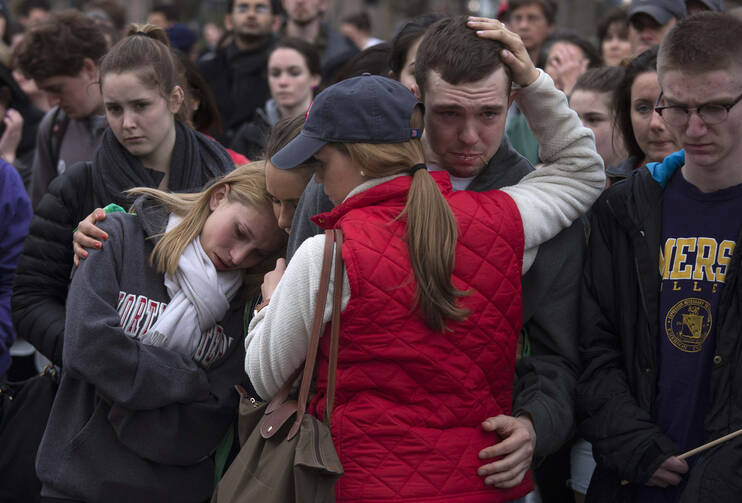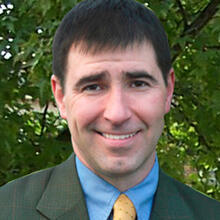Twelve years tick off changes in media as much as they replay the same horrible narrative of terror. In 2001, we watched news camera clips on endless replay. Today, scenes from Boston are broadcast continuously, but from the myriad angles of bystander smartphone uploads. A decade from now these will likely be synthesized into a video-game-like virtual experience. We will walk through terror events and experience them unfolding as if we were there. As we struggle with the Boston bombing, we must pay attention to what this ritual of media immersion does to us.
The terrorist aims to hijack the narrative of everyday life. Terror corrodes the unthought safety of our daily routines, turning once unseen garbage cans into omnipresent threats. It colors ominous our most precious moments of mundane joy, like…dear God… exuberant 8 year olds running to embrace their fathers.
Media extends the terrorist's reach, surrounding us with crisis. Long after those fateful seconds have passed, we continue to relive them. The screen makes us spectral witnesses reliving endless replays: an aged man collapses, medics and volunteers rush to save the injured, and young Martin smiles holding his sign, “No more hurting people.” Our deepest moral instincts scream out for us to act, but we are not there, the screen does not allow that.
So much concern, yet there is nothing we can do. Jonesing on the story, we manically refresh our browsers like lab rats, seeking any clue about who did this and why. We await their capture and the unfolding of the narrative they have written for us all with explosives, nails,… and other people’s blood. Media immersion channels our moral energy into the terrorist’s dark story.
In 2001 that energy went through quick changes: Shock. The adrenaline rush to check on the safety of loved ones. Then a few days of disaster intimacy; conversations with neighbors under quiet skies; lines at blood clinics for survivors we would learn did not exist. Solidarity soon shaded subtly into patriot flags. Once we knew our attackers, we succumbed to the terrorist’s demonic dare: “Return my hate. Let it give you meaning.” We yoked our story to theirs.
It would be a lie to suggest that the moral failures that followed in the wake of 9/11 were simply the result of emotional energy needing an outlet for action. Our march to war was crafted of carefully manipulated truths and well-told lies.
We live still in the morass of that moral failure. Drones bomb children whose beautiful smiles we never see. In Guantanamo, our prisoners hunger strike, prevented from death by force-feeding. These facts are merely known, no lurid images replay to immerse us in their dark truth.
Our generation faces the Boston bombing without the shock of innocence. We know where this can go. Yes, there are bad people in the world and they can do horrible things. But our moral measure is not the selfless courage of first responders charging up the stairs or into shrapnel. As believers and citizens, we face a question that can only be answered away from emergency’s chaos, and--even more--away from its pseudo continuation in the jolty jazzing media stream.
Knowing the terrorist’s narrative is on offer, we might pause from the media stream that extends it to us and turn with urgency to that other narrative that knows human evil, nails, innocent blood, and indeed, the very same demon dare, but answered these with love. That is, of course, not a policy. But unless we begin there, there is no reason to hope we will fare any better facing terrorism’s demon dare than we did 12 years ago.








